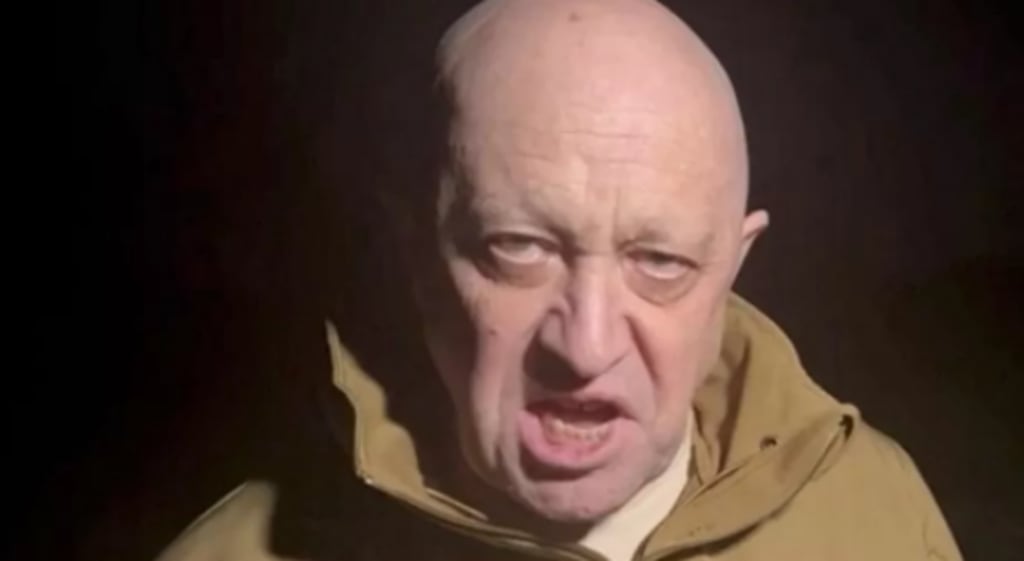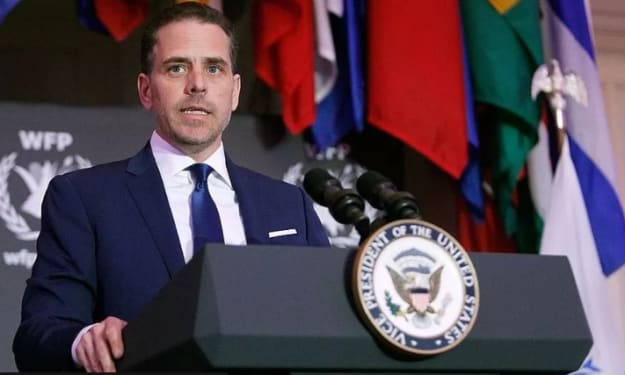Cracks in Putin's Rule Exposed: The Wagner Mutiny Unveils Real Challenges - US Perspective
Attempted armed rebellion reveals vulnerabilities in President Vladimir Putin's authority, as highlighted by US Secretary of State Antony Blinken

In a significant development, the recent armed mutiny in Russia has shed light on the "real cracks" within President Vladimir Putin's rule, according to top US diplomat Antony Blinken.
Speaking to the US media, Blinken emphasized that the rebellion led by Yevgeny Prigozhin's Wagner fighters posed a direct challenge to Putin, ultimately forcing him into an amnesty agreement.
The agreement successfully halted the advance of the Wagner mercenaries towards Moscow, after they had previously seized control of two major Russian cities.
Initially accusing the group of treason, President Putin later dropped all charges against them.
Under the terms of the agreement, Wagner fighters are required to return to their field bases, while Prigozhin, the group's leader, is expected to relocate to Belarus, Russia's neighboring country. The negotiations involving Belarusian leader Alexander Lukashenko played a pivotal role in reaching this resolution.
The current whereabouts of Prigozhin, a former loyalist to Putin, remain unknown. His last public appearance was witnessed as he departed from Rostov-on-Don, one of the southern cities where his fighters had gained control over military installations.
Prigozhin's press service released a statement through Russia's RTVI news website on Sunday afternoon, indicating that he would address the media "once he has regained normal communication means." No further details were provided.
Meanwhile, President Putin has not made any public appearances since his televised address on Saturday morning, in which he condemned the mutiny.
On Sunday, Secretary Blinken shared his perspective with CBS, the US news partner of the BBC, stating that the 24-hour rebellion in Russia "raises profound questions and reveals real cracks."
During his appearances on various US talk shows, Blinken asserted that it was premature to predict the mutiny's potential impact on the Kremlin or on Russia's ongoing full-scale invasion of Ukraine, which commenced in February 2022.
Blinken highlighted the stark contrast between the present situation and 16 months ago when Putin's forces were on the verge of capturing Kyiv, the capital of Ukraine, with the intention of erasing the country from the map. Now, Putin finds himself defending Moscow, Russia's own capital, against a rebellion initiated by his own mercenaries.
The US diplomat refrained from speculating on the implications for Russia and President Putin personally, stating that it was too early to make definitive conclusions.
As of now, Russia has not officially responded to Blinken's remarks.
The BBC's Moscow-based Russia editor, Steve Rosenberg, observes that Saturday's events have left President Putin appearing vulnerable. The Wagner group effortlessly seized control of military facilities in a major Russian city and advanced northward towards Moscow.
Despite attempting to overthrow Russia's military leadership, Prigozhin remains at large, a free man, reflecting the complex dynamics at play within the country.
Following the Wagner mutiny, the implications and consequences of the rebellion reverberated not only within Russia but also on the international stage. The audacity and relative ease with which the Wagner fighters seized control of military facilities in a major Russian city raised concerns about the stability of Putin's rule and the effectiveness of his security apparatus.
The events of the mutiny sparked debates and speculation about the underlying tensions and fissures within Putin's regime. Analysts and observers questioned whether this uprising was an isolated incident or a manifestation of deeper discontent and dissatisfaction among various factions within the Russian establishment.
The involvement of Yevgeny Prigozhin, a prominent figure with close ties to Putin, added a layer of complexity to the situation. Prigozhin's ability to organize and mobilize a formidable mercenary force like Wagner suggested a level of influence and power beyond what was commonly known. His sudden disappearance following the mutiny only fueled speculation about his motives and intentions.
The international community closely monitored these developments, particularly countries with vested interests in Russia's actions. Secretary Blinken's remarks emphasized the impact of the mutiny on Russia's invasion of Ukraine, a conflict that had already strained diplomatic relations and resulted in severe consequences for both nations. The rebellion served as a reminder of the volatility and unpredictable nature of the region, potentially influencing foreign policies and strategies.
Moreover, the mutiny highlighted the challenges faced by Putin in maintaining control over various factions and paramilitary groups operating within Russia. The ability of Wagner fighters to operate with such autonomy and the subsequent amnesty agreement exposed weaknesses in Putin's authority and raised questions about the loyalty and obedience of his armed forces.
The absence of President Putin from public view since his televised address further fueled speculation about his response to the mutiny and his ability to assert control over the situation. The silence from the Kremlin regarding Secretary Blinken's comments only added to the uncertainty surrounding Russia's internal dynamics.
As the dust settled and the immediate crisis subsided, the aftermath of the Wagner mutiny would continue to reverberate within Russia and have implications beyond its borders. The event served as a wake-up call, highlighting the need for Putin to address the internal challenges facing his rule and reassess the loyalty and effectiveness of his security apparatus.
The question remained: would the mutiny be a catalyst for meaningful changes and reforms within Russia, or would it be swiftly suppressed, allowing Putin to consolidate his power once again? The answers to these questions would unfold in the coming days and weeks, shaping the future trajectory of both Russia's domestic affairs and its interactions with the international community.
About the Creator
Anthony Gatimu
Being a writer,It requires constancy, discipline, and vulnerability.But inside that weakness lies your most noteworthy strength, for it is through your weakness that you interface with perusers on a significant level.






Comments
There are no comments for this story
Be the first to respond and start the conversation.